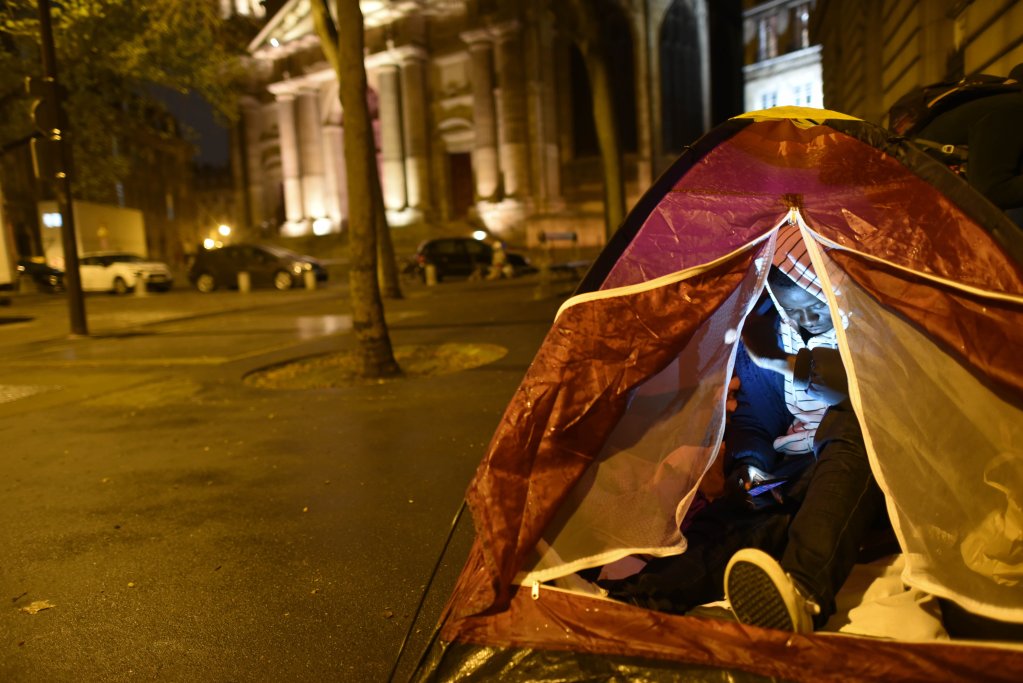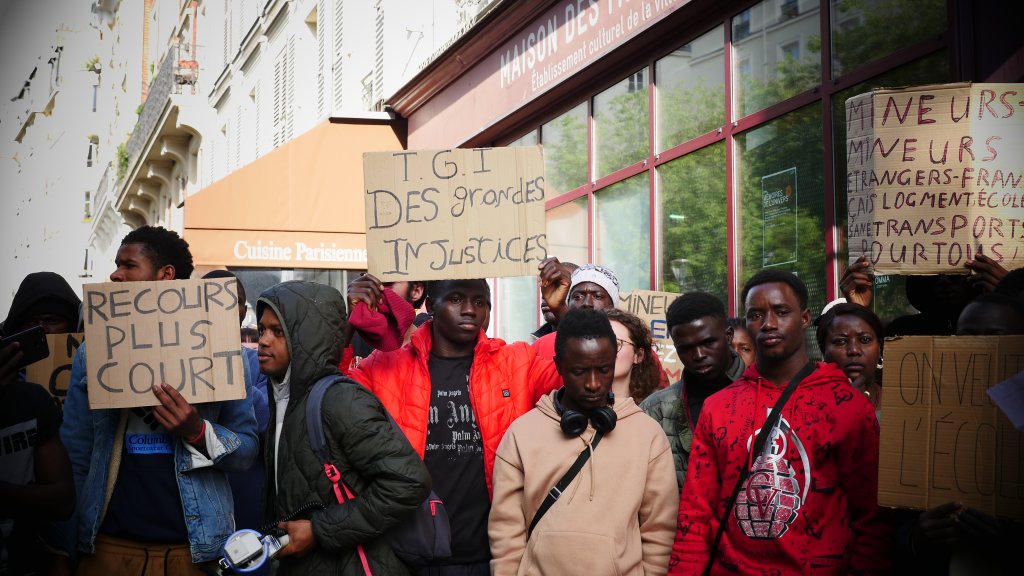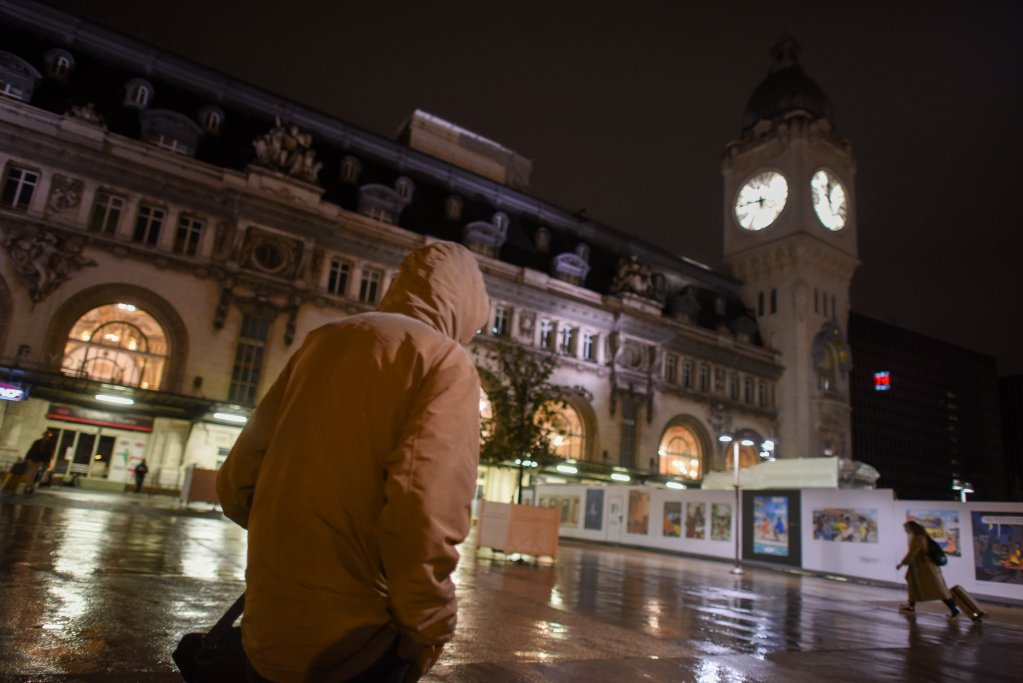A report by Action Against Hunger, an NGO active in the world's poorest countries, has found that in the French capital, 53 percent of unaccompanied minors under the age of 17 are suffering "severe hunger." Most of them are Guineans and Ivorians.
"We chase after food all day": It's a complaint that Action Against Hunger (AAH) undoubtedly hoped it would no longer hear in Paris, one of the richest cities in the world. However, in a study carried out this winter among around a hundred foreign minors aged 15 and 16, the NGO found they do not have enough to eat.
"This is obviously outrageous for France, which is not living up to its obligations in terms of fighting hunger," says Helene Quéau, head of the France mission for Action Against Hunger, contacted by InfoMigrants. "It’s intolerable."
53 percent is a level that we find more in contexts of acute humanitarian crises, like in West Africa
The NGO and the co-authors of the field report deemed the findings "very alarming." In addition to insufficient access to accommodation, the lack of medical support or the inability to attend school, these young people often go to bed hungry.
These adolescents are not taken care of by the state, as they are not recognized as minors and are thus excluded from child welfare services. Most have filed a legal appeal for recognition of their juvenile status and are awaiting the decision of a children's judge, which can take several months. In the meantime, they are left to fend for themselves on the street.
According to a study carried out by the National Coordination of Young Migrants in Danger (CNJED) among around a hundred associations and collectives active across France, "at least 3,477 isolated young foreigners" are currently in the process of having their minority recognized in France. Among them, more than a third, in March, were on the street without any housing solution.
Because they barely know the country they just arrived in, these minors are also heavily dependent on food aid and often have no food reserves in their possession.
Also read: Housing, food, asylum: Newcomers in Ile-de-France in need of information

'53%, a figure pointing to a worrying trend'
Some of them do not even know where food aid is distributed. And according to the report, knowing where is not enough, you still need to be able to get there. In fact, "the various distribution sites are often far from where they stay, limiting their ability to go there on a regular basis".
During its reporting, the InfoMigrants editorial team often met minors waiting for a trial decision over their age who could not move around Paris to eat. Some were too tired of walking, after nights being "chased by police," and preferred to limit themselves to the few, sometimes single meals available in the area where they were resting. Others were afraid of being stopped on public transport without a ticket.

More than half of young people surveyed by AAH (53%) are in a situation of "severe hunger," that is to say they have not eaten for 24 hours, and have gone to bed on an empty stomach. "We calculate this level of hunger using a range of indicators," explains Hélène Quéau. According to the report, this is one of the highest scores recorded by AAH since 2019 in France.
"This is a critical level that is rarely reached,” the AAH manager explained. "Obviously, we must be careful with the figures, because everything depends on the sample size, but 53 percent is a level that we find more in contexts of acute humanitarian crises, like in West Africa," she continues. "This is a figure that marks a worrying trend, from which we cannot look away."
The report shows that around 39 percent of young people are in a situation of moderate hunger, while only 8 percent have little or no hunger. The study was carried out over four days in October and November 2023 at four sites: the Humanitarian Halt (1st arrondissement in Paris), the Coucou Crew (18th arrondissement), the inter-association service on Wednesday morning at the Pali Kao garden (20th arrondissement), and the Utopia 56 service at City Hall (1st arrondissement).
Also read: France: Can unaccompanied minors benefit from the 'young adult' contract?
'24 hours without eating anything'
The study also highlights the "saturation" of distribution sites. For example, the Porte de la Villette site in the 19th arrondissement of Paris is one of the busiest meal distribution systems in France, according to another AAH study.

The risk of violence inherent in the gathering of people in the same place sometimes frightens minors. "The current organization of food distribution is not necessarily suitable for young people and exposes them to the risk of violence when mixed with very vulnerable adults."
It is difficult to assess the total number of these unaccompanied minors in the capital. A large part of them fall off the radar of associations. Some went through the Erlanger school, in the 16th arrondissement of Paris, when it was occupied for months by hundreds of unhoused migrants until June 2023. Others lived in Belleville park, in the north of the capital, before they were pushed out last October. Others took refuge under the bridges in the center of Paris this winter, before also being evicted.
These minors go from place to place, endlessly displaced and evicted by police. That is because police follow the "zero fixation point" policy, dismantling any informal camps popping up across the city, the report states.
Translated from the French original by Arno Pedram
Also read: Paris: Police 'evacuate' 400 young migrants without offering alternative shelter
